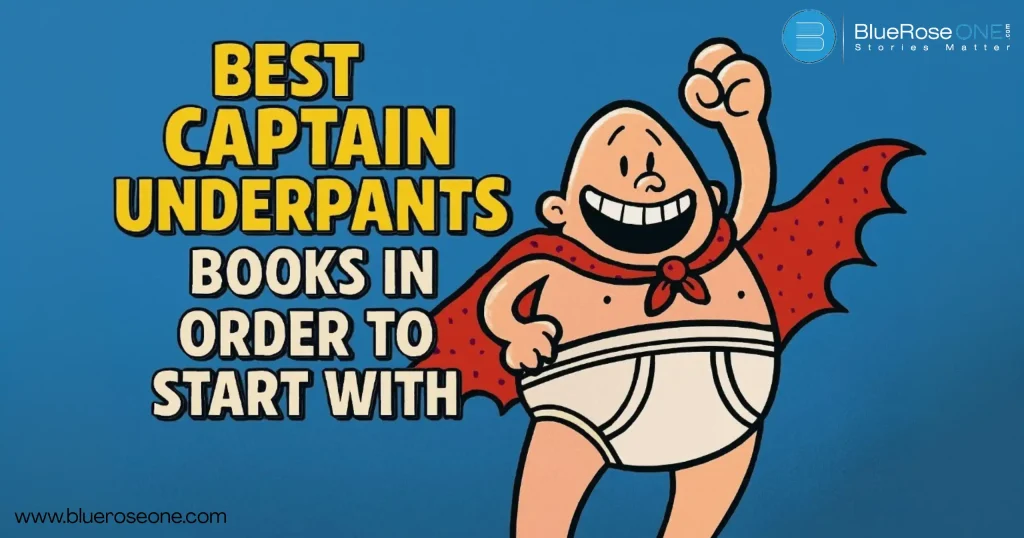
Best Captain Underpants Books in Order to Start With
If you’re looking for a hilarious and lighthearted series for kids, the Captain Underpants books by Dav Pilkey are the perfect choice. Packed with humor, comics, and wild adventures, this bestselling series has entertained millions of young readers worldwide. But with so many titles in the collection, you may wonder: Which Captain Underpants books are the best to start with? This guide will walk you through the top picks for beginners, so you or your child can jump right into George and Harold’s unforgettable adventures. Why Start with Captain Underpants? Before diving into specific books, it’s important to understand why this series is so popular. Captain Underpants books are written in simple, engaging language, making them great for early and middle-grade readers. The combination of comic-style illustrations, funny plots, and relatable school settings keeps kids hooked. Plus, the stories encourage creativity, imagination, and even reluctant readers to fall in love with books. You may aslo read: Colon vs Semicolon: When to Use Each Correctly Best Captain Underpants Books to Begin With 1. The Adventures of Captain Underpants (1997) If you’re new to the series, the first book is the best place to start. It introduces George Beard and Harold Hutchins, two mischievous kids who accidentally create Captain Underpants through their hypnotized principal, Mr. Krupp. This book sets the stage for the entire series and gives readers a taste of the quirky humor and fast-paced storytelling that defines Dav Pilkey’s work. The Adventures of Captain Underpants – Captain Underpants Books in Order Captain Underpants and the Attack of the Talking Toilets – Captain Underpants Books in Order 2. Captain Underpants and the Attack of the Talking Toilets (1999) Once you’ve enjoyed the first adventure, the second book takes things up a notch. George and Harold’s comic creation comes to life again, this time with a hilarious twist—talking toilets! It’s a reader favorite because of its over-the-top silliness, making it a perfect follow-up for beginners. You may also read: Top 10 Libraries in Trivandrum for Students and Readers You may also like: Best Stephen King Novels for First-Time Readers 3. Captain Underpants and the Invasion of the Incredibly Naughty Cafeteria Ladies from Outer Space (1999) Dav Pilkey’s Captain Underpants and the Invasion of the Incredibly Naughty Cafeteria Ladies from Outer Space is a hilarious adventure where alien lunch ladies try to take over the school. With George, Harold, and the ever-clueless Captain Underpants, readers dive into wild humor, outrageous pranks, and nonstop action that sparks laughter throughout. Captain Underpants and the Invasion of the Incredibly Naughty Cafeteria Ladies from Outer Space – Captain Underpants Books in Order Captain Underpants and the Perilous Plot of Professor Poopypants – Captain Underpants Books in Order 4. Captain Underpants and the Perilous Plot of Professor Poopypants (2000) Dav Pilkey’s Captain Underpants and the Perilous Plot of Professor Poopypants (2000) is a hilarious adventure where the eccentric Professor Poopypants forces everyone to adopt silly names, creating chaos at school. George, Harold, and the ever-heroic Captain Underpants must stop his wacky plan. Packed with humor, action, and creativity, it’s a laugh-out-loud tale kids adore. You may also like: 150 Fun Onomatopoeia Examples to Boost Your Writing 5. Captain Underpants and the Wrath of the Wicked Wedgie Woman (2001) Captain Underpants and the Wrath of the Wicked Wedgie Woman by Dav Pilkey is a hilarious adventure where George and Harold accidentally turn their strict teacher, Ms. Ribble, into the villainous Wedgie Woman. With outrageous humor, wild illustrations, and nonstop action, this book keeps readers laughing while celebrating creativity, friendship, and the endless imagination of kids. Captain Underpants and the Wrath of the Wicked Wedgie Woman – Captain Underpants Books in Order Captain Underpants and the Big, Bad Battle of the Bionic Booger Boy, part 1 – Captain Underpants Books in Order 6. Captain Underpants and the Big, Bad Battle of the Bionic Booger Boy, Part 1 (2003) Dav Pilkey’s Captain Underpants and the Big, Bad Battle of the Bionic Booger Boy, Part 1 is a humorous, action-packed tale that combines gross-out humour and wild imagination. This time, George and Harold’s devious antics cause havoc when Melvin Sneedly, the school prodigy, unexpectedly transforms into a monstrous bionic booger boy. Things spiral out of control as slime, snot, and silliness take over, leaving Captain Underpants to save the day. Pilkey’s brilliant use of comic-style visuals and humorous storytelling keeps readers smiling while providing unending excitement. It’s an excellent choice for children that enjoy humour, adventure, and a little nasty fun. You may also read: 70+ Overall Synonyms and Antonyms with Examples You may also like: Cosmic Horror Books That Will Haunt You 7. Captain Underpants and the Big, Bad Battle of the Bionic Booger Boy, Part 2 (2003) Where the first part left off, Dav Pilkey’s Captain Underpants and the Big, Bad Battle of the Bionic Booger Boy, Part 2 (2003) picks up the comic turmoil. The evil team of George and Harold have to contend with the terrifying Bionic Booger Boy, a hideous invention gone horribly wrong. As Captain Underpants attempts to save the day, the adventure becomes more outrageous with slime, snot, and constant silliness. With its smart comics, laugh-out-loud moments, and Pilkey’s trademark humour, this book celebrates friendship and creativity while keeping young readers captivated. It’s hilarious, nasty, and incredibly creative—ideal for children who enjoy wild experiences. Captain Underpants and the Big, Bad Battle of the Bionic Booger Boy, Part 2 – Captain Underpants Books in Order Captain Underpants and the Preposterous Plight of the Purple Potty People – Captain Underpants Books in Order 8. Captain Underpants and the Preposterous Plight of the Purple Potty People (2006) Captain Underpants and the Preposterous Plight of the Purple Potty People by Dav Pilkey transports readers to a humorous parallel reality. Captain Underpants, George, and Harold are stranded in a world where everything is upside down, including wicked twins who reign with mischief. Packed with Pilkey’s signature sense of humour, ridiculous shenanigans, and comic-style fun, this book celebrates creativity, friendship, and the love of storytelling while…
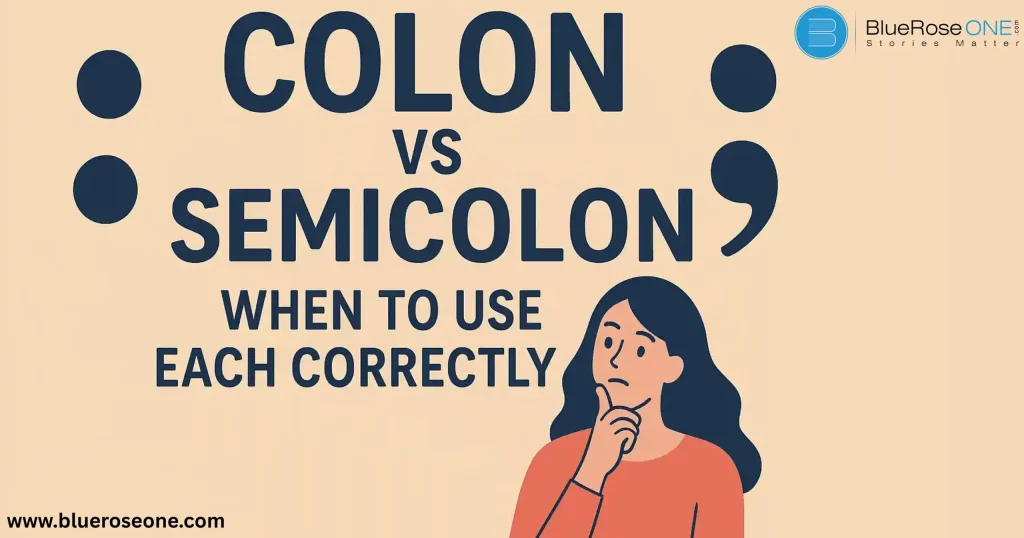
Colon vs Semicolon: When to Use Each Correctly
Table of Content When it comes to writing clearly and effectively, punctuation plays a powerful role. Two marks that often confuse writers are the colon (:) and the semicolon (;). They may seem similar, but actually they have very different functions. Understanding the difference between colon vs semicolon will not only improve your grammar but also make your writing sharper, more professional, and easier to read. Let’s dive deep into when and how to use each punctuation mark with practical examples. You may also like: List of Nobel Prize Winners in India (Updated) 1. Colon to Introduce Lists A colon is most commonly used to introduce a list. It signals to the reader that something important or detailed is about to follow. Example: Here, the colon works as a spotlight, it introduces the list and shows that what comes after is directly related to the first part of the sentence. When thinking of colon vs semicolon in lists, remember that semicolons are only used in complex lists (we’ll cover that later), while colons are for standard lists. 2. Colon Before Explanations or Clarifications Another powerful use of a colon is to expand or clarify an idea. The colon acts like an equal sign: what comes after explains or defines what comes before. Example: In this case, the colon bridges the general statement with a specific explanation. This is a crucial distinction in the colon vs semicolon debate, while the colon introduces new information, the semicolon connects complete but related ideas. You may also read: Top 10 Libraries in Trivandrum for Students and Readers 3. Colon in Formal Introductions or Quotations Colons are also useful in formal or professional writing when introducing a statement, announcement, or quotation. They add a sense of authority and emphasis. Example: In academic or business writing, this usage makes the message stronger and more structured. When comparing colon vs semicolon here, only the colon carries this function—semicolons never introduce quotes. 4. Colon Between Independent Clauses (When the Second Explains the First) Colons can connect two independent clauses if the second one explains, expands, or illustrates the first. Example: Here, the colon highlights the result of the first clause. In the context of colon vs semicolon, remember that the semicolon could also connect two clauses, but it wouldn’t carry the same “explanatory” emphasis. The colon is stronger and more directional. 5. Semicolon to Connect Closely Related Independent Clauses A semicolon acts as a middle ground between a period and a comma. It links two independent clauses that are closely related, making the writing smoother. Example: Both parts could be separate sentences, but the semicolon ties them together. In the colon vs semicolon comparison, this is where the semicolon shines: it balances two equal, related ideas without using conjunctions like and or but. You may also like: 150 Fun Onomatopoeia Examples to Boost Your Writing 6. Semicolon with Conjunctive Adverbs When using conjunctive adverbs (however, therefore, consequently, moreover, etc.), semicolons help structure the sentence clearly. Example: The semicolon prevents the sentence from becoming a run-on, while the adverb smoothly transitions between ideas. This use is unique to semicolons, so in colon vs semicolon scenarios, this is a rule that belongs strictly to semicolons. 7. Semicolon in Complex Lists One of the most practical uses of a semicolon is in lists where the items already contain commas. Without semicolons, these lists become confusing. Example: In this case, semicolons separate the larger groups (cities and countries), while commas separate the smaller elements. When it comes to colon vs semicolon, remember: colons introduce lists, but semicolons organize complex ones. You may also like: Jocko Willink Books Ranked from Best to Worst 8. Common Mistakes with Colon vs Semicolon Many writers misuse colons and semicolons. Here are the most common errors: Recognizing these mistakes is key to mastering colon vs semicolon usage. You may also like: Top Cozy Fantasy Books Every Bookworm Will Love Final Thoughts The colon vs semicolon distinction comes down to purpose. A colon introduces, explains, or emphasizes what comes next. A semicolon balances, connects, or organizes ideas and lists. Both punctuation marks bring clarity and sophistication to your writing, when used correctly. By practicing these rules and learning from examples, you’ll not only avoid common grammar mistakes but also elevate your writing to a more polished, professional level. Frequently Asked Questions – Colon vs Semicolon

Top 10 Libraries in Trivandrum for Students and Readers
Libraries are the entrances to knowledge, and books are the windows. Libraries continue to have a certain allure in the fast-paced digital world of today, particularly for students and voracious readers. Kerala’s capital, Trivandrum, is a reader’s paradise in addition to being a centre of politics and culture. Whether you’re a student in school, a researcher at a university, or just someone who enjoys the smell of old books, Trivandrum has libraries that range from historic to modern. Let’s explore the top ten libraries in Trivandrum that are a must-see for any reader or student. 1. State Central Library (Trivandrum Public Library) The jewel in the crown of Kerala’s library system is the State Central Library, also called the Trivandrum Public Library. It is among India’s oldest public libraries, having been founded in 1829. Housed in a beautiful heritage building, it has over half a million books, ranging from classics to modern literature. Rare manuscripts, digital resources, and a peaceful reading area are among the amenities. This library is a must-see whether you’re a researcher or just a reader. If you are looking for best libaries in Trivandrum, you can visit State Central Library. State Central Library – Libraries in Trivandrum 2. Kerala University Library This is your intellectual haven if you’re a college student. The Kerala University Library was established in 1942 and is brimming with research papers, scholarly journals, and academic resources. Although its primary audience consists of researchers and postgraduate students, bookworms with a voracious appetite for information can also gain from it. The library is a great place for serious study because membership is reasonably priced and it gives access to international academic databases. Kerala University Library – Libraries in Trivandrum 3. British Council Library Do you want to learn more about world literature? Trivandrum’s British Council Library is ideal. It offers a top-notch reading experience and is well-known for its vast collection of English-language books, foreign periodicals, and digital resources. The library is more than just a place to read; it’s a centre for networking and education, hosting cultural events, workshops, and interactive sessions. 4. Library of Kerala Legislature The Library of Kerala Legislature is a hidden treasure for anyone interested in politics, law, and governance. It contains government records, legislative reports, debate records, and reference materials. Although it’s not your typical library for fiction readers, this is the place to go if you’re studying public policy or governance. Library of Kerala Legislature – Libraries in Trivandrum 5. Connemara Public Library Branch The Connemara Library’s Trivandrum branch is just as inventive as its main Chennai location. The rare books and government documents in this library’s collection are well-known. Because of its extensive collection of academic materials and reference books, this library is frequently helpful to students getting ready for competitive exams. Connemara Public Library – Libraries in Trivandrum 6. Kerala State Science and Technology Library (KSSTL) Fans of science, rejoice! A wealth of STEM resources can be found at the Kerala State Science and Technology Library. It facilitates engineering, medical, and technological research through journals, technical papers, and scientific databases. Students enrolled in professional courses who require current and trustworthy scientific materials frequently visit the library. Kerala State Science and Technology Library – Libraries in Trivandrum 7. Eloor Library Eloor is well-known for its extensive and diverse collection, which includes best-sellers and Booker-winning novels, children’s books, fiction, nonfiction, and more. It routinely updated its stock to incorporate the most recent publications. It drew a diverse range of customers, including students, professionals, writers, scholars, and ardent readers looking for publications not readily available elsewhere. The Trivandrum branch of the Eloor Library was opened in 1986, following the establishment of the Ernakulam location in 1979. Eloor Library – Libraries in Trivandrum 8. Government Law College Library This location is essential for law students. Thousands of legal references, journals, and case law reports can be found at the Government Law College Library in Trivandrum. With access to the greatest legal resources, it’s a great place for students to get ready for legal exams, internships, and moot courts. Government Law College Library – Libraries in Trivandrum 9. Centre for Development Studies (CDS) Library The CDS Library is a treasure trove for social science and economics students. Its collection of books, journals, and reports on economics, development studies, and related subjects is robust. Its international publications section sets it apart, and its serene setting promotes research. 10. Loyola College Library Last but not least, the Loyola College Library serves both academic and casual readers. Apart from textbooks and reference materials, it also offers novels, biographies, and general reading material. This makes it a great choice for students who want both academic support and leisure reading options. Loyola College Library – Libraries in Trivandrum Tips for Students to Make the Most of Trivandrum Libraries Get Membership Early – Many libraries require registration, so plan ahead. Use Digital Resources – Don’t just stick to books; explore e-journals and online archives. Set Study Goals – Going with a study plan will help you stay productive. Explore Different Libraries – Each library in Trivandrum has its own specialty—make the most of them. Conclusion In addition to being the administrative centre of Kerala, Trivandrum serves as a refuge for students and readers. The city has something to offer everyone, from the stately State Central Library to specialised centres like CDS and KSSTL. Trivandrum’s libraries are ready for you, whether your goal is academic success or you’re just searching for a comfortable spot to read a book. You might discover your next favourite book in one of these knowledge gems, so pick up your reading list and get exploring. Frequently asked questions 1. Which is the largest library in Trivandrum? The State Central Library is the largest and most historic library in Trivandrum. 2. Are Trivandrum libraries open to the public? Yes, most are open to the public, though some require membership or student ID. 3. Do libraries in Trivandrum offer digital resources? Yes,…
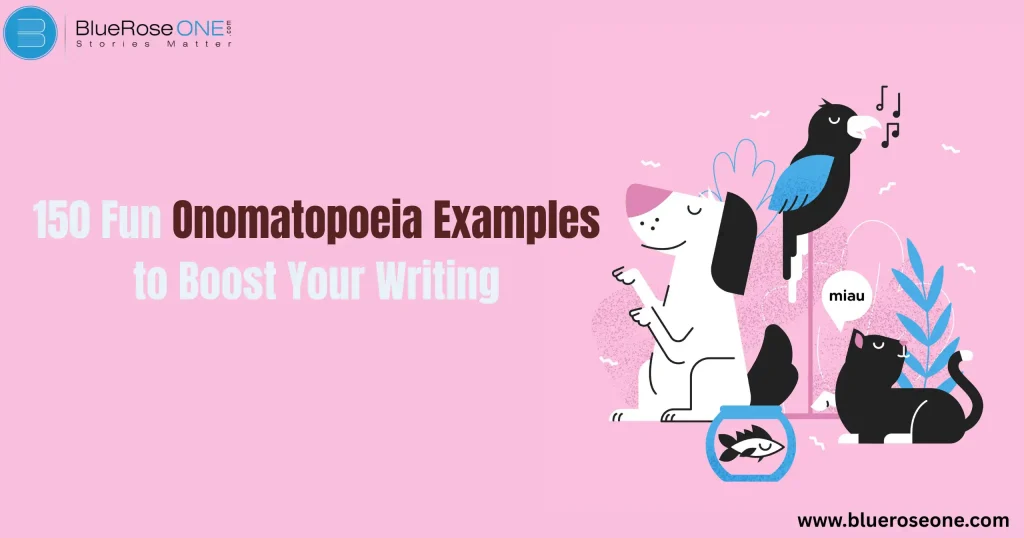
150 Fun Onomatopoeia Examples to Boost Your Writing
Ever read a story where the thunder went boom, the clock went tick-tock, or the cat went meow? That’s onomatopoeia in action! These playful sound words breathe life into writing, making it more vivid and fun. Whether you’re a budding writer, a student, or just someone who loves words, onomatopoeia can instantly make your sentences more engaging. Definition and Origin Onomatopoeia comes from the Greek words onoma (name) and poiein (to make). Essentially, it means “word-making.” These are words that sound like the thing they describe, like buzz, crash, or bang. You may also like: 70+ Overall Synonyms and Antonyms with Examples Types of Onomatopoeia Words Not all sound words are the same. Some mimic natural sounds, others reflect human noises, and some are invented in comics and pop culture. Categories of Onomatopoeia Animal Sounds – From woof to moo, these bring pets, farms, and wild animals to life. Human Sounds – Think cough, sneeze, giggle, and gasp—perfect for showing emotions and actions. Nature Sounds – Wind, rain, thunder, and fire all have sound words that make descriptions richer. Mechanical and Objects Sounds – Cars vroom, doors creak, and phones buzz. Comic and Cartoon Sounds – From superhero punches (pow!) to explosions (kaboom!), these exaggerations make writing fun. You may also read: 300+ Common 3 Syllable Words You Should Know Complete List of 150 Fun Onomatopoeia Examples Animal Sounds You may also like: Top Cozy Fantasy Books Every Bookworm Will Love Human Sounds Nature Sounds You may also like: Cosmic Horror Books That Will Haunt You Objects and Mechanical Sounds Food and Eatind Sounds You may also read: Jocko Willink Books Ranked from Best to Worst Cartoon & Comic Sounds Tips for Using Onomatopoeia Effectively Conclusion Onomatopoeia is like adding background music to your writing, it sets the tone, stirs emotions, and keeps readers hooked. With these 150 examples, you now have a treasure chest of sound words to make your stories, poems, and conversations come alive. Next time you write, don’t just describe the scene, let it be heard! Frequently asked questions
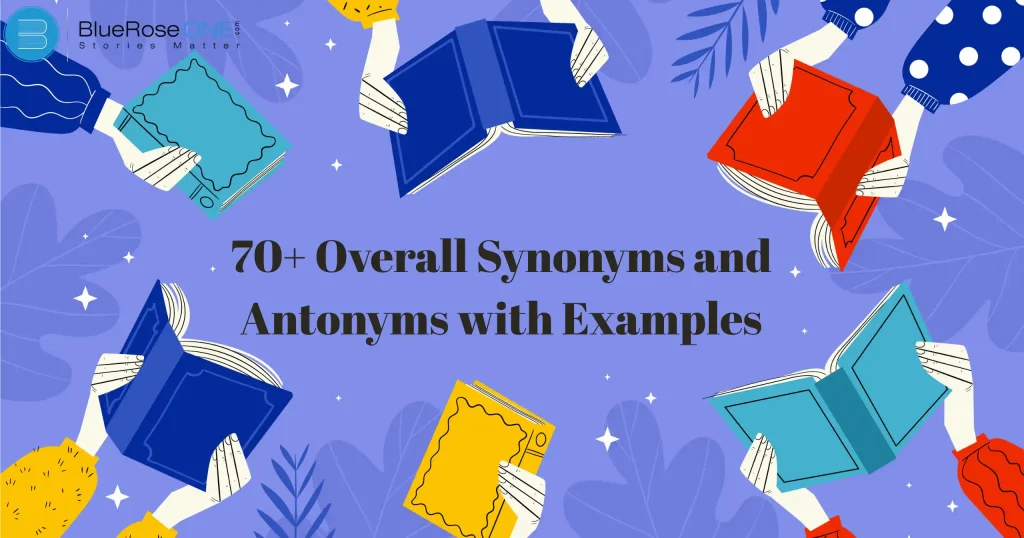
70+ Overall Synonyms and Antonyms with Examples
The word overall is commonly used in everyday English to summarize or give a broad perspective. But if you use the same word repeatedly, your writing may sound dull. That’s where synonyms and antonyms come in handy. In this guide, we’ll explore more than 70 overall synonyms and antonyms overall, along with examples to help you use them effectively. Why Learn Synonyms and Antonyms of “Overall”? Expand Vocabulary – Knowing alternatives makes your language richer. Enhance Writing Style – Replacing repetitive words keeps writing fresh. Avoid Repetition – Synonyms help express the same idea differently. You may also read: How “You Can Heal Your Life” Changes Everything Synonyms of Overall Common Synonyms of “Overall” General – The general opinion was positive. Total – The total cost exceeded our budget. Entire – The entire project was completed on time. Whole – The whole class agreed with the decision. Advanced Synonyms of “Overall” Comprehensive – She gave a comprehensive review of the topic. All-inclusive – The package offered an all-inclusive price. Global – The issue has a global impact. Sweeping – The reform had sweeping changes across the system. Antonyms of Overall Common Antonyms of “Overall” Partial – He gave only a partial explanation. Limited – The study had limited scope. Specific – The teacher asked for a specific answer. Advanced Antonyms of “Overall” Restricted – The restricted area was off-limits. Incomplete – The report felt incomplete without data. Narrow – They had a narrow focus on one issu You may also read: Jocko Willink Books Ranked from Best to Worst Detailed List of 70+ Synonyms and Antonyms Synonyms of Overall with Examples Synonym Example Sentence General The general outcome was satisfying. Entire The entire journey was thrilling. Total The total expenses shocked us. Whole The whole plan worked perfectly. All-inclusive The resort provides all-inclusive deals. Comprehensive She prepared a comprehensive guide. Sweeping The sweeping reforms changed the law. Global The global view was essential. Complete His complete knowledge impressed everyone. Universal The idea has universal acceptance. Broad He gave a broad perspective. Overall view The overall view was optimistic. Aggregate The aggregate score was high. Entirety The entirety of the play was engaging. Collectively Collectively, they worked hard. Totality The totality of evidence was undeniable. Inclusive The policy is inclusive of all needs. Full-scale A full-scale investigation was launched. Holistic They took a holistic approach. Outright He gave outright support. Antonyms of Overall with Examples Antonym Example Sentence Partial The partial answer wasn’t enough. Limited His knowledge was limited. Specific She asked for a specific detail. Restricted Entry was restricted to staff. Narrow The narrow view missed key points. Incomplete The incomplete project caused delays. Exclusive The exclusive group met privately. Fragmented His fragmented ideas lacked clarity. Tiny scope The study had a tiny scope. Localized The damage was localized to one area. Using Synonyms and Antonyms in Sentences Formal Contexts The comprehensive report showed positive results. The limited evidence was not enough to convict. Informal Contexts Overall, the party was fun. Her explanation was too narrow to understand. Academic Writing The aggregate data revealed consistent patterns. The fragmented results weakened the argument. Creative Writing She saw the world in its entirety. His narrow view blinded him to the truth. You may also like: Top Cozy Fantasy Books Every Bookworm Will Love Tips to Remember Synonyms and Antonyms Word Associations – Link new words with familiar ones. Flashcards – Write synonyms and antonyms on cards for quick revision. Practice in Sentences – Use them in daily writing. Final Thoughts The word overall is versatile and widely used, but having synonyms and antonyms at your fingertips gives you the power to communicate with precision. Whether in casual conversation, academic writing, or storytelling, using alternatives can make your language more engaging and impactful. Frequently asked questions 1. What is the best synonym for “overall”? General or comprehensive are the most commonly used. 2. Can “overall” and “general” be used interchangeably? Yes, in most cases, they can replace each other. 3. What is the opposite of “overall”? Words like partial or limited serve as opposites. 4. Why should we use synonyms in writing? They prevent repetition and enrich your vocabulary. 5. How to practice using synonyms and antonyms daily? By writing short sentences and replacing common words with alternatives.
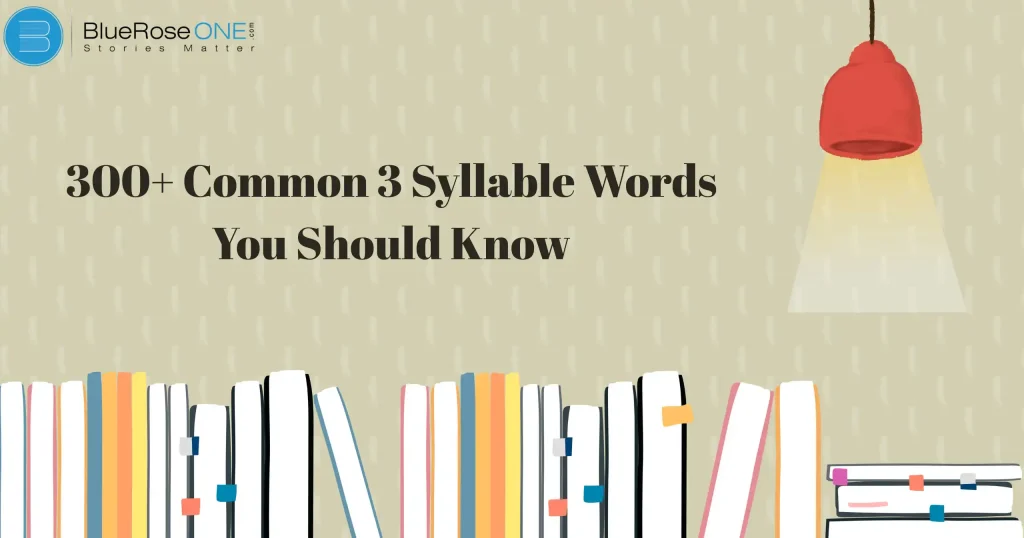
300+ Common 3 Syllable Words You Should Know
Have you ever noticed yourself fumbling over specific words when reading aloud? This is most likely due to syllables, which are the heartbeat of each word. A syllable is simply a single sound or rhythm in a word. Today, we’ll look at 3 syllable words, which are among the most common in English. They’re ubiquitous in discussions, literature, and music. Learning them not only expands vocabulary, but also improves fluency and communication skills. What are 3 Syllable Words? A 3-syllable word is a word that contains three distinct sound units. For example: banana (ba-na-na), computer (com-pu-ter), and tomato (to-ma-to). You may also like: Cosmic Horror Books That Will Haunt You Benefits of Learning 3 Syllable Words Expands vocabulary: You’ll have more words at your disposal. Improves reading fluency: Breaking words into syllables makes reading smoother. Enhances communication: Helps you sound clearer and more confident. Supports creativity: Great for poetry, music, and storytelling because of their rhythm. 300 Common 3 Syllable Words – A Complete List Nouns (Everyday Objects, Places, and Things) Animal Adventure Banana Butterfly Chocolate Cinema Family Holiday Potato Vanilla Manager Hospital Elephant Lavender Coconut Volcano Tomato Banana Professor Designer Reporter Carpenter Adventure Division Industry Operator Reporter Library America Canada Africa Asia Antarctica Australia Europe Energy Dinosaur Gallery Festival Magazine Bicycle Literature President Internet Telephone Apartment Delivery Territory Computer Radio You may also read: Best Stephen King Novels for First-Time Readers Verbs (Action Words) Remember Discover Entertain Consider Deliver Encourage Celebrate Imagine Apologize Recognize Understand Recommend Introduce Appreciate Participate Calculate Demonstrate Separate Contribute Encourage Investigate Operate Educate Eliminate Facilitate Generate Motivate Regulate Communicate Concentrate Designate Differentiate Negotiate Organize Celebrate Terminate Associate Dominate Evacuate Illuminate You may also like: 10 Best Psychological Horror Books to Read at Night Adjectives (Descriptive Words) Beautiful Dangerous Positive Important Wonderful Generous Terrible Excited Lonely Powerful Happiest Amazing Creative Energetic Romantic Fantastic Curious Dangerous Delicious Fabulous Gorgeous Handsome Incredible Popular Serious Tragic Victorious Nervous Courageous Comfortable Elegant Expensive Sensitive Respectful Impressive Natural Dangerous Magical Beautifully Generous Adverbs (How Actions Are Done) Carefully Suddenly Happily Seriously Silently Lovingly Eagerly Quietly Rapidly Easily Clearly Directly Quickly Regularly Perfectly Naturally Especially Absolutely Practically Possibly You may also like: Chloe Walsh Books in Order You Can’t Miss Nature & Environment Butterfly Elephant Kangaroo Volcano Lavender Coconut Banana Tomato Potato Chocolate Strawberry Rosemary Waterfall Rainbow Hurricane Tornado Animal Reptile Insect Predator Emotions & Feelings Happiness Wonderful Excited Terrible Lonely Positive Negative Surprised Courageous Nervous Angry Jealousy Fearful Grateful Sadness Joyful Terrified Proudly Peaceful Romantic Food & Drinks Chocolate Vanilla Banana Potato Tomato Coconut Ice cream Strawberry Blueberry Raspberry Cinnamon Lemonade Pineapple Mangoes Apricot Popcorn Peanut butter Broccoli Spaghetti Macaroni You may also read: 10 Reasons to Read the Ponniyin Selvan Book Today Professions & Occupations Manager Reporter Designer Professor Carpenter Operator Technician Musician Photographer Politician Librarian Athlete Engineer Doctorate Secretary Pilot Gardener Teacher Assistant Officer Academic / Education Words Literature Division Equation Geometry Professor Political University Academic Education Learning History Science Geography Chemistry Biology Arithmetic Language Reading Writing College Everyday Mixed Words Yesterday Tomorrow Remember Energy Important Celebrate Telephone Television Internet Gallery Magazine Adventure Festival Dangerous Serious Victorious Comfortable Romantic Courageous Curious Operator Discovery Delivery Happiness Celebrate Magazine Cinema Computer Beautiful Positive Powerful Dangerous Hospital Territory Activity Industry Telephone Elevator Calculator Holiday President Yesterday Tomorrow Celebrate Recognize Apologize Operate Generate Motivate Participate Conclusion 3 syllable words are like the sweet spot in English, easy enough to handle but powerful enough to make your communication shine. By practicing them, you’ll boost fluency, expand vocabulary, and even make your writing more engaging. Whether you’re a student, writer, or just someone who loves language, mastering these words will definitely pay off. Frequently asked questions 1. What is the easiest way to identify 3-syllable words? Clap while saying the word—three claps means three syllables. 2. Are 3-syllable words important for children? Yes! They build reading confidence and vocabulary early on. 3. How can I practice 3-syllable words daily? Use flashcards, read aloud, or play word games. 4. Do 3-syllable words help in creative writing? Absolutely! They create rhythm and variety in writing. 5. Can songs and poems help in learning 3-syllable words? Yes, music and poetry are excellent for reinforcing word rhythm.
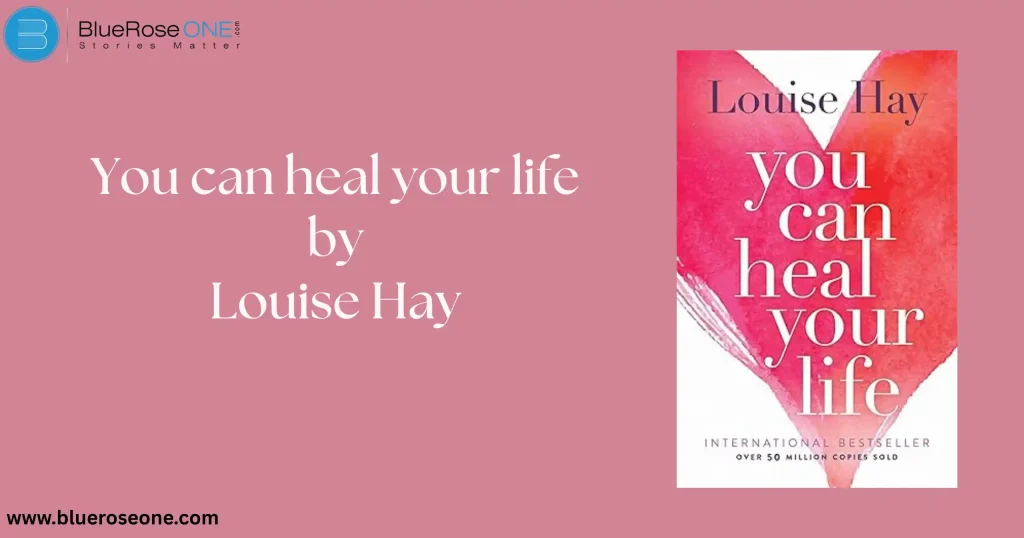
You Can Heal Your Life a Book by Louise Hay
What if the key to a better life was already within you? Louise Hay’s groundbreaking book “You Can Heal Your Life” suggests exactly that. Since its release in 1984, it has inspired millions worldwide, teaching that our thoughts and beliefs shape our reality. But beyond being a self-help classic, this book continues to transform lives by showing us how to heal emotionally, mentally, and even physically. Who Is Louise Hay? Louise Hay wasn’t born into an easy life. She endured poverty, abuse, and heartbreak before discovering the power of positive thinking. Instead of letting her pain define her, she chose transformation. Later, she founded Hay House Publishing, which became a hub for spiritual and self-help authors. Her own journey of resilience makes her teachings deeply authentic. You may also like: Top Cozy Fantasy Books Every Bookworm Will Love The Core Message of “You Can Heal Your Life” One profound fact that runs across the entire book is that your ideas shape your reality. Your experiences will reflect the negativity you feed your mind on a regular basis. However, your life starts to change when you practise forgiveness, affirmations, and self-love. The process of healing begins in the mind and spreads to every aspect of your existence. How the Book Changes Your Mindset Limiting ideas like “I’m not good enough” or “I don’t deserve love” are carried by the majority of us. This book shows you how to think more empowering thoughts to replace those that undermine you. It’s similar to pulling old weeds from a garden to make room for fresh blooms. As you practise regularly, you start to see resilience, joy, and confidence blossoming inside of you. Emotional Healing Through Self-Acceptance True healing doesn’t come from ignoring pain, it comes from facing it with love. Louise emphasizes forgiving yourself and others, nurturing your inner child, and letting go of guilt. Imagine carrying a heavy backpack for years, then finally setting it down. That’s what self-acceptance feels like it frees you to live lighter and happier. You may also like: Cosmic Horror Books That Will Haunt You The Connection Between Mind and Body Louise believed that the body mirrors the mind. Stress, anger, and resentment often manifest as physical illness. By releasing negative emotions and replacing them with love, people have reported profound healing. The book even includes exercises to identify which beliefs may be tied to certain health issues, helping readers restore balance. Affirmations and Their Transformative Power Affirmations are at the core of Louise’s method. These are short, positive statements you repeat daily—like seeds planted in fertile soil. For example, saying “I am worthy of love” regularly can reprogram your subconscious. The key is consistency and belief. Over time, affirmations shift your inner dialogue and create new realities. Reprogramming Your Subconscious Mind Unconscious programming from childhood shapes a large portion of our behaviour. Louise shows us how to use writing, visualisation, and meditation to overcome ingrained programming. It’s similar to updating your mental software; you’re removing outdated glitches and adding empowering codes that support your success. You may also read: Best Stephen King Novels for First-Time Readers The Role of Gratitude and Positivity Gratitude is a superpower that Louise often emphasized. When you focus on what you already have, you attract more of it. Simple practices like writing three things you’re grateful for daily can dramatically lift your mood. Gratitude turns ordinary moments into blessings and rewires your brain for positivity. Building Healthier Relationships Healing your life also means healing your relationships. Louise believed that the way you treat yourself sets the tone for how others treat you. By cultivating self-love, you naturally attract healthier, more supportive relationships while letting go of toxic dynamics. Spiritual Growth in “You Can Heal Your Life” Beyond personal development, the book opens doors to spiritual growth. Louise encourages readers to trust the universe, align with their life purpose, and strengthen their intuition. It’s about realizing that you’re not alone, you’re connected to something much bigger than yourself. You may also like: Jocko Willink Books Ranked from Best to Worst Practical Steps for Applying the Book Reading the book is just the beginning. Louise recommends simple daily practices: When these become habits, transformation is inevitable. Common Misconceptions About the Book Some critics dismiss the book as “toxic positivity,” but Louise never asked readers to ignore pain. Instead, she taught how to acknowledge it and transform it. Others argue it’s purely spiritual, but modern science also supports the mind-body connection. The book bridges both worlds beautifully. Lasting Life Transformations From cancer survivors to everyday people seeking peace, countless readers share how “You Can Heal Your Life” transformed them. It’s not just about healing sickness, it’s about creating a life of joy, abundance, and love. Its timeless wisdom ensures that even decades later, the book still changes everything. You may also like: 10 Best Psychological Horror Books to Read at Night Conclusion Louise Hay’s message is simple yet powerful: change your thoughts, and you change your life. “You Can Heal Your Life” is more than a book, it’s a roadmap to self-love, healing, and transformation. Whether you’re facing emotional wounds, health challenges, or limiting beliefs, the tools inside can truly change everything, if you’re willing to apply them. FAQs – “You Can Heal Your Life”
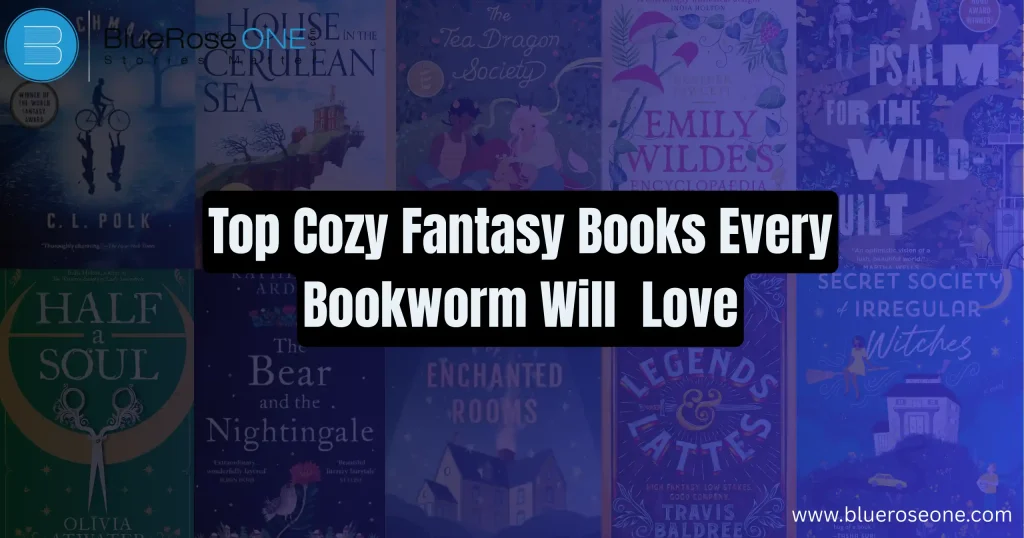
Top Cozy Fantasy Books Every Bookworm Will Love
Curling up with a book is one of life’s simplest joys, and if you’re a bookworm looking for comfort, cozy fantasy is the perfect genre for you. Unlike the epic battles and dark magic you find in high fantasy, cozy fantasy offers something gentler: magical worlds filled with warmth, friendship, and heart. In this guide we’ll explore the top 10 best cozy fantasy books that will every bookworm will love. But what exactly makes a fantasy story “cozy”? Let’s dive in. What is Cozy Fantasy? Cozy fantasy is a subgenre of fantasy fiction that focuses on small, heartwarming stories rather than world-shattering conflicts. Think less “save the kingdom from destruction” and more “open a coffee shop with orcs and elves as regulars.” It’s about finding magic in the everyday and celebrating simple joys. In today’s busy, stressful world, readers crave stories that feel like a cup of tea on a rainy day. Cozy fantasy provides exactly that: low-stakes plots, endearing characters, and magical comfort. It’s no surprise that the genre is booming across bookstores, book clubs, and social media platforms like BookTok. You may also like: Cosmic Horror Books That Will Haunt You Elements That Define Cozy Fantasy Lighthearted Storytelling A defining element of cozy fantasy is its lighthearted storytelling, where gentle humor, whimsical dialogue, and uplifting themes replace grim battles. These narratives prioritize warmth, comfort, and charm, creating delightful escapes that leave readers feeling refreshed and hopeful. Relatable Characters Cozy fantasy thrives on characters who feel genuine and approachable. Unlike epic heroes, these figures often face everyday struggles, forming deep friendships and personal growth journeys. Their warmth and humanity draw readers into comforting, heartfelt storytelling. Magical Settings with Comforting Vibes Magical Settings with Comforting Vibes captures the sense of cosy imagination with its warm, fascinating sceneries and welcoming atmospheres. Its subtle charm, calming tone, and passionate narration transport readers into a world of peace, wonder, and emotional comfort. A Focus on Community and Relationships. You may also read: Best Stephen King Novels for First-Time Readers Best Cozy Fantasy Books Every Reader Should Explore Legends & Lattes by Travis Baldree Legends & Lattes by Travis Baldree is often hailed as the quintessential cozy fantasy novel. Instead of epic battles, it follows Viv, an orc who retires from adventuring to open a coffee shop in a quiet town. Filled with warmth, friendship, and the charm of building a new life, the story offers comfort and heart over conflict, making it a must-read for fans of gentle, feel-good fantasy. Legends & Lattes by Travis Baldree – Best Cozy Fantasy Books The House in the Cerulean Sea by TJ Klune TJ Klune’s charming story, The House in the Cerulean Sea, is frequently referred to as a “hug in book form.” It centres on Linus Baker, a caseworker assigned to assess an enigmatic orphanage that cares for youngsters with magical abilities. One of the most cherished cosy fantasy novels of our time, Klune’s captivating storytelling crafts a whimsical yet profoundly poignant story with themes of love, acceptance, and belonging. You may also like: Jocko Willink Books Ranked from Best to Worst The House in the Cerulean Sea by TJ Klune – Best Cozy Fantasy Books Emily Wilde’s Encyclopaedia of Faeries by Heather Fawcett Heather Fawcett’s Encyclopaedia of Faeries by Emily Wilde is a charming mix of scholarly interest and playful storytelling. The book combines mythology, a cozy setting, and a gradual friendship as it follows the adventures of a smart but socially awkward scholar who researches faeries in a remote village. It’s a great pick for those seeking fantasy stories that offer both comfort and awe, thanks to its engaging mix of magic, wintery landscapes, and heartfelt moments. Emily Wilde’s Encyclopaedia of Faeries – Best Cozy Fantasy Books The Tea Dragon Society by Kay O’Neill The Tea Dragon Society by Kay O’Neill is a heartwarming graphic novel that captures the essence of cozy fantasy. With its gentle storytelling and whimsical illustrations, the book invites readers into a world where tea dragons produce magical leaves. Beyond its charming premise, the story emphasizes friendship, tradition, and kindness. This makes it a delightful and comforting read for fantasy lovers of all ages. You may also like: 10 Reasons to Read the Ponniyin Selvan Book Today The Tea Dragon Society – Best Cozy Fantasy Books A Psalm for the Wild-Built by Becky Chambers Becky Chambers’ A Psalm for the Wild-Built is a gentle, heartwarming novella that captures cozy fantasy well. Set in a hopeful future, it follows a tea monk and a robot as they embark on a thoughtful journey to explore purpose, connection, and meaning in life. With its soothing tone, deep reflections, and rich worldbuilding, this book gives readers comfort and inspiration. It is a must-read for fans of cozy fantasy. A Psalm for the Wild-Built – Best Cozy Fantasy Books Half a Soul by Olivia Atwater Half a Soul by Olivia Atwater is a charming fantasy set in the Regency era. It combines romance, magic, and whimsy. The story follows Dora, a young woman who loses half her soul after meeting a faerie, making her delightfully unconventional. With sharp dialogue, enchanting settings, and a hint of social commentary, this novel provides a warm and comforting read. It’s perfect for fans looking for a lighthearted yet meaningful cozy fantasy escape. You may also like: 10 Best Psychological Horror Books to Read at Night Half a Soul by Olivia Atwater – Best Cozy Fantasy Books The Very Secret Society of Irregular Witches by Sangu Mandanna The Very Secret Society of Irregular Witches by Sangu Mandanna is a heartwarming and magical tale perfect for cozy fantasy lovers. The story follows Mika Moon, a lonely witch who finds unexpected belonging when invited to teach three young witches. Blending charm, humor, and found-family themes, the novel offers gentle magic and emotional warmth, making it an uplifting read that celebrates love, acceptance, and the courage to embrace one’s true self. The Very Secret Society of Irregular Witches – Best Cozy Fantasy Books Witchmark by C.L….
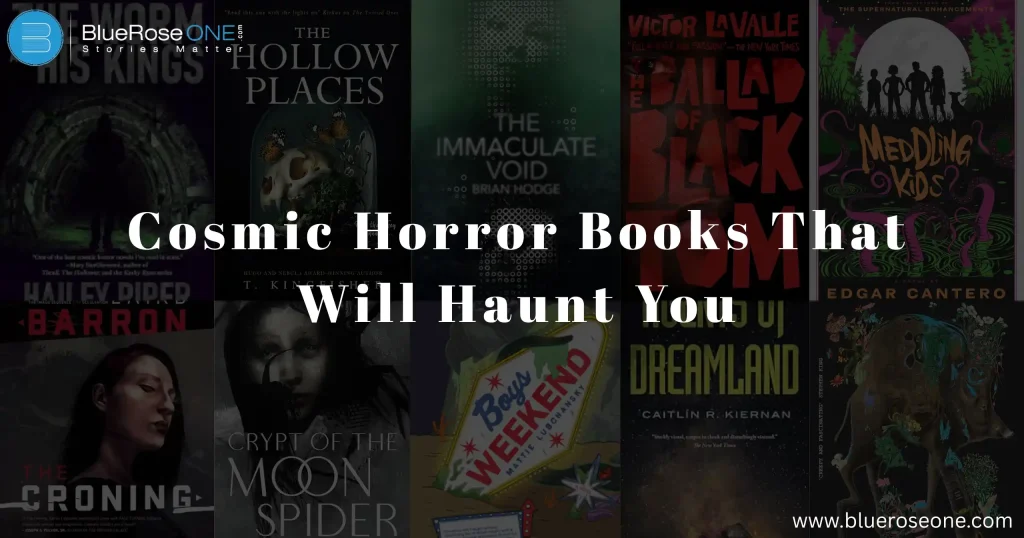
Cosmic Horror Books That Will Haunt You
Cosmic horror isn’t your typical jump-scare horror. Instead of relying on blood, ghosts, or monsters, it taps into something far more terrifying: the idea that the universe doesn’t care about us. Imagine standing under a star-filled sky and realizing that everything you know, your life, your history, humanity itself, is just a tiny speck. That’s cosmic horror in a nutshell. In this article we are going to cover most-read cosmic horror books of all time. At its heart, cosmic horror thrives on three chilling ideas: our insignificance, the unknown, and the indifferent universe. Unlike slashers or haunted houses, these stories don’t always end with answers. In actuality, the mystery is what matters; the more unknown, the more terrifying. Must-Read Cosmic Horror Books The Ballad of Black by Victor LaValle Victor LaValle’s The Ballad of Black Tom retells Lovecraft’s “The Horror at Red Hook” from the perspective of Charles Thomas “Tommy” Tester, a Black street performer in Harlem in the 1920s. LaValle creates a compelling blend of racial injustice and cosmic fear as Tester becomes caught up in sinister rites and eldritch powers. This incisive, contemporary novella combines scathing societal criticism with weird fiction, leaving you thinking long after you’ve turned the last page. The Ballad of Black – Cosmic Horror Books The Croning by Laird Barron Laird Barron’s The Croning (2012) is a chilling modern entry into cosmic horror, weaving folklore, myth, and existential dread into a deeply unsettling narrative. The novel follows geologist Donald Miller, whose quiet life hides sinister truths about his family’s connection to ancient, inhuman forces. With themes of memory, secrecy, and inevitable doom, Barron masterfully blends cosmic terror with psychological unease, making The Croning essential reading for fans of Lovecraftian horror. The Croning – Cosmic Horror Books The Immaculate Void by Brian Hodge The Immaculate Void by Brian Hodge is a terrifying work of contemporary cosmic horror that combines existential dread with psychological discomfort. The narrative centres on an author who ventures into a lonely wilderness only to face forces that are older and more sinister than humanity itself. The work embodies Lovecraftian horror with its combination of atmospheric suspense, seclusion, and disturbing disclosures, offering a harrowing and intensely personal journey into the unknown. The Immaculate – Cosmic Horror Books Annihilation by Novel by Jeff VanderMeer Annihilation by Jeff VanderMeer is a modern classic of cosmic horror, combining psychological tension with spooky, unearthly secrets. The novel follows a group of scientists as they explore Area X, a strange and hazardous place in which natural principles unravel. VanderMeer’s eerie vision and growing dread capture the core of cosmic horror, human insignificance in the face of an inexplicable force, making Annihilation a must-read for aficionados of both awe and terror. Annihilation- Cosmic Horror Books The Hollow Places: A Novel Ursula Vernon The Hollow Places by Ursula Vernon (writing as T. Kingfisher) is a chilling modern take on cosmic horror. Blending an unsettling atmosphere with sharp wit, the novel follows a woman who discovers a mysterious portal hidden behind a wall. What lies beyond is a realm of unspeakable creatures and mind-bending horrors. With its balance of dread and dark humor, this book captures the essence of cosmic terror in a uniquely engaging way. The Hollow Places – Cosmic Horror Books What the Hell Did I Just Read Novel by Jason Pargin What the Hell Did I Just Read by Jason Pargin (writing as David Wong) is a darkly comedic yet deeply unsettling cosmic horror novel. Blending humor with existential dread, the story follows David and John as they face grotesque creatures, warped realities, and government conspiracies. Pargin masterfully satirizes horror tropes while confronting the incomprehensible terror of the unknown, making this book both bizarrely entertaining and disturbingly haunting. What the Hell Did I Just Read – Cosmic Horror Books Crypt of the Moon Spider Book by Nathan Ballingrud Nathan Ballingrud’s Crypt of the Moon Spider (2024) is a chilling novella set in an alternate 1923 where lunar forests conceal ruins of a spider god’s crypt. A melancholic Veronica is sent to the Barrowfield asylum, where Dr. Cull grafts moon-spider silk onto human brains in grotesque experiments that blur medicine and myth. The atmospheric, genre-blending narrative delivers a haunting, surreal descent into cosmic dread. Crypt of the Moon Spider – Cosmic Horror Books Meddling Kids Novel by Edgar Cantero Meddling Kids by Edgar Cantero is a modern twist on cosmic horror that blends nostalgic mystery with unsettling dread. Inspired by classic teen detective stories, the novel follows a grown-up group of sleuths confronting the lingering horrors of their childhood case. Cantero weaves eerie atmosphere, surreal humor, and Lovecraftian elements into the narrative, creating a chilling yet playful tale that subverts nostalgia while delivering spine-tingling cosmic terror. Meddling Kids- Cosmic Horror Books The Worm and His Kings Book by Hailey Piper The Worm and His Kings by Hailey Piper is a modern gem in cosmic horror, blending a chilling atmosphere with emotional depth. Set in 1990s New York, the novella follows Monique, a young woman searching for her missing girlfriend, only to stumble into an underground world of cults, ancient gods, and unsettling revelations. Piper masterfully weaves queer identity with cosmic dread, creating a haunting tale that lingers long after the final page. The Worm and His Kings – Cosmic Horror Books Agents of Dreamland Book by Caitlín R. Kiernan Agents of Dreamland by Caitlín R. Kiernan is a chilling blend of cosmic horror and spy thriller, weaving government conspiracy with nightmarish alien forces. Set in a desolate desert landscape, the novella follows operatives investigating a cult whose rituals unleash an otherworldly plague. Kiernan’s atmospheric prose and unsettling imagery capture the essence of Lovecraftian dread, making this book a must-read for fans of modern cosmic horror. Agents of Dreamland – Cosmic Horror Books Boys Weekend Novel by Mattie Lubchansky Boys Weekend by Mattie Lubchansky blends cosmic horror with biting social satire, making it a standout in modern horror literature. The novel follows a bachelor party gone wrong, unraveling…
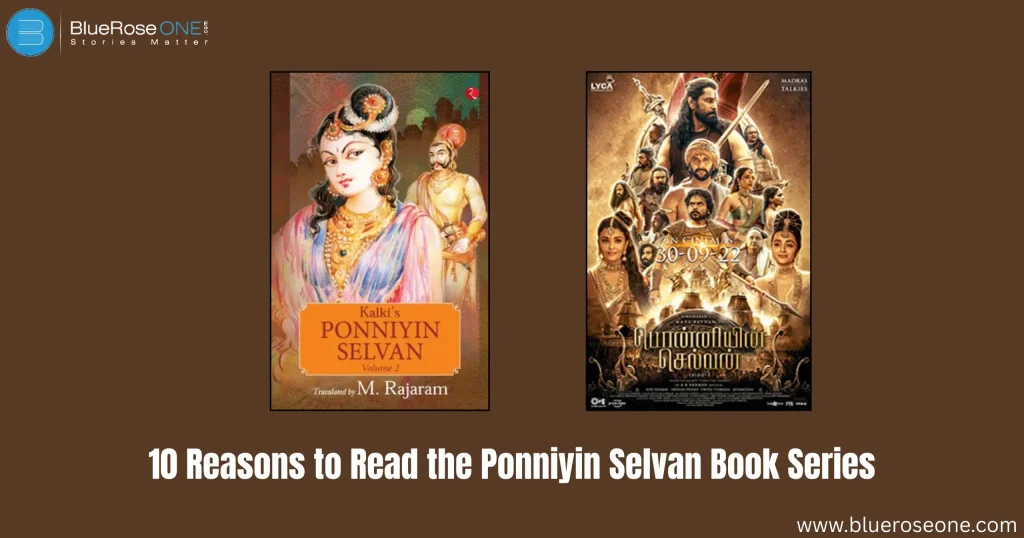
10 Reasons to Read the Ponniyin Selvan Book Today
The Ponniyin Selvan book series is more than just a historical novel, it’s a literary treasure that has captured the hearts of millions for decades. Written by Kalki Krishnamurthy in the 1950s, this five-part Tamil epic transports readers to the grandeur of the Chola dynasty, blending fact with fiction in an unforgettable saga of power, politics, love, and betrayal.In the age of fast-paced thrillers and digital storytelling, why should you pick up a decades-old classic? Here are 10 compelling reasons why the Ponniyin Selvan book series deserves your attention today, whether you’re a literature enthusiast, a history buff, or just looking for your next great read. 1. A Masterpiece of Tamil Historical Fiction – Ponniyin Selvan The Ponniyin Selvan book series is regarded as one of the most significant achievements in Indian historical literature. Kalki Krishnamurthy’s rigorous research and innovative narrative bring 10th-century South India to life with remarkable authenticity and vivid detail. It’s a rare blend of history and creativity, akin to what Tolstoy did with War and Peace, but set in the heart of the Chola empire. Recommended Reading: Kalki Krishnamurthy’s works on Project Madurai — an open-source digital library preserving classic Tamil literature. 2. Unmatched Storytelling and Plot Depth Unlike many modern novels, which rely on fast hooks and cliffhangers, Ponniyin Selvan unravels slowly, but with stunning emotional and narrative payoff. The plot is filled with twists, suspense, espionage, and richly developed characters that keep you invested for all five volumes. The layered narrative involves palace intrigues, identity mysteries, secret romances, and daring missions. Every subplot interweaves seamlessly with the grander tale, making it a literary puzzle that’s deeply satisfying to solve. You may also like: Jocko Willink Books Ranked from Best to Worst 3. Inspiration Behind a Blockbuster Film Series If Mani Ratnam’s cinematic spectacular Ponniyin Selvan: I & II piqued your interest, the books provide an even more immersive experience. The films, while visually stunning, can only portray a portion of the story’s richness. The books dig into interior monologues, backstories, and elements that the films had to simplify. Reading the original series provides new meaning and admiration for the characters depicted on film. Whether you’re revisiting the plot after watching the film or starting from scratch, the novels provide a deeper, more complete experience. You may also read: 10 Best Psychological Horror Books to Read at Night 4. Timeless Themes That Still Resonate At its core, the Ponniyin Selvan book series explores timeless human themes, ambition, loyalty, love, power, and betrayal. These emotions and dilemmas are just as relevant today as they were in ancient times. This universality is one of the main reasons the series continues to attract readers from all generations. Despite the historical setting, the characters’ internal conflicts and desires mirror the challenges we face today. You may also like: Sage Archetype: Meaning and Tips for Writers 5. Incredible Character Development From the charming Vandiyathevan to the enigmatic Nandhini, every character in the Ponniyin Selvan series is fully realized. Each has a distinct voice, motivation, and arc. What’s most impressive is that even minor characters feel alive, with backstories and motivations that enhance the main plot. Nandhini, in particular, remains one of the most complex female antagonists in Indian literature. Characters grow, evolve, deceive, and redeem themselves in ways that feel authentic and powerful. It’s a masterclass in character writing. 6. Authentic Glimpse into Chola-Era Tamil Nadu Kalki spent years researching the political, cultural, and geographical intricacies of the Chola dynasty. As you read, you’re transported to the bustling cities, majestic temples, naval expeditions, and war rooms of 10th-century South India. The descriptions of Thanjavur, Pazhayarai, and Kadambur are so vivid that they function as time machines, turning every reader into a traveler of history. Fun Fact: The Chola dynasty was one of the longest-ruling dynasties in South India, known for its naval strength, administrative efficiency, and temple architecture. Learn more at World History Encyclopedia – Chola Dynasty 7. Beautiful Use of Language and Poetry Originally written in Tamil, the Ponniyin Selvan book series is celebrated for its lyrical language, humor, and poetic expressions. Kalki, being a poet himself, infused the narrative with cultural richness, witty dialogues, and vivid imagery. Even in translated versions, the beauty of the original prose shines through. It’s a treat for lovers of language who appreciate the rhythm and flow of storytelling. For Tamil readers, it’s an unparalleled linguistic delight; for non-Tamil readers, it opens the door to one of India’s richest literary traditions. You may also read: Caregiver Archetype: Definition, Key Traits, Example and Roles 8. A Cultural Education in Disguise Reading Ponniyin Selvan is like taking a crash course in South Indian art, religion, and tradition. The books are filled with references to temple rituals, architecture, classical music, and societal structures of the time. Without being didactic, the narrative subtly teaches you about Tamil culture, royal etiquette, and even ancient warfare techniques. It’s education packaged within entertainment. This makes it an excellent supplementary read for students of Indian history or cultural studies. 9. Available in Multiple Languages and Formats Gone are the days when the Ponniyin Selvan book series was only accessible to Tamil readers. Today, you can find it in English, Hindi, Telugu, and several other Indian languages. It’s also available as eBooks, audiobooks, and even podcast-style serializations. Some great translations include the versions by Pavithra Srinivasan and C.V. Karthik Narayanan. While no translation can perfectly replicate the original, these editions do an admirable job. So whether you’re a casual reader or a literature enthusiast, there’s a version out there tailored for your preferences. 10. A Journey Worth Every Page Each book in the series ends on a note that compels you to continue, and by the time you finish all five volumes, you feel like you’ve lived through a lifetime. Few books can make readers feel such deep emotional investment. Whether it’s the burning questions surrounding Arulmozhi Varman’s destiny or the emotional entanglements of Kundavai and Vandiyathevan, you’ll find yourself engrossed in a world that’s…
